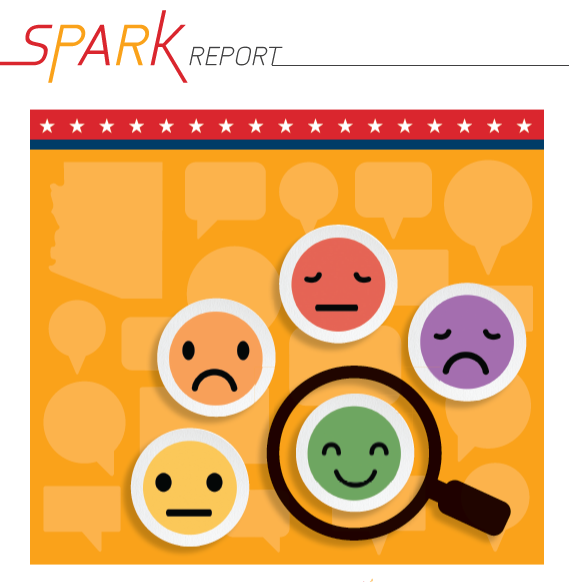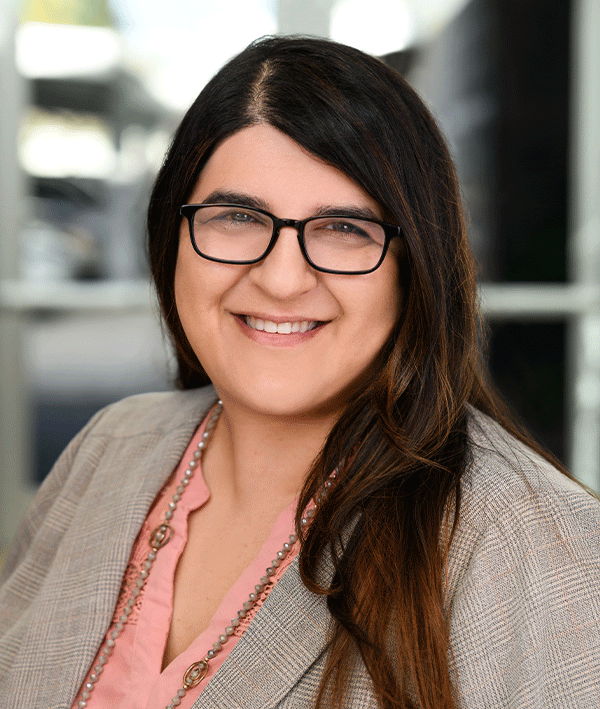

Full report: Download here. | Press release: Arizonans react strongly
Introduction
When the Arizona Civic Life Partnership was launched in 2021, the Center for the Future of Arizona and the Arizona Center for Civic Leadership assembled a statewide Civic Health Steering Committee in order to work alongside diverse geographic, demographic, and issue-based communities as we created a shared vision, mission, objectives, and set of strategies.
Early in our discussions as a group, a foundational insight emerged – we need to begin with a common vocabulary and language as a community of partners first. The committee helped identify those shared values and data built on the foundation of shared language creates a path to finding the greater, common good.
This insight met with an opportunity to collaborate with an innovative national research project spearheaded by Philanthropy for Civic Engagement (PACE).
What is the Civic Language Perceptions Project?
In early 2022, PACE released data seeking to understand people’s perceptions of the language associated with civic engagement and democracy work. Between November 21-28, 2021, PACE fielded a nationally representative survey of 5,000 registered voters to poll 21 terms commonly used in civic engagement and democracy work.
At best, are we talking past each other? At worse, are we furthering divisions, disillusionment, or disengagement?
Vitalyst Health Foundation sponsored an oversample of 601 Arizona residents to look more closely at how Arizonans perceive and associate civic language. With both the national and Arizona data in hand, we observed some interesting takeaways, and themes emerged through a series of data visualizations. In order to deepen our understanding of the data, probe the findings, and explore what resonated with communities cross the state, the Arizona Civic Life Partnership launched a series of community dialogues in 2022-2023.
How Do Arizonans Perceive Civic Language?
Arizonans are more extreme in their perceptions towards civic terms than Americans overall. For the words where the national population is most positive (unity, liberty, justice, citizen, Arizona residents are even more positive towards those terms. The converse is true as well – the words where the national population is least positive (civic infrastructure, civil society, privilege, pluralism), Arizona residents are even less positive.


How do Demographics Shape Arizonans’ Perceptions of Civic Language?
- Younger Arizonans have lower positivity on civic terms than older Arizonans.
- Arizonans with a college education are more positive on 85% of the terms surveyed than non-college students.
- Over half of the terms surveyed have over a 10% positivity differential between urban and rural respondents.
- Race/ethnicity presents some of the biggest differences within the subgroup analysis, particularly between Hispanic and white Arizonans.

Community Conversations
Throughout the fall of 2022, we heard from leaders across the state. A few common takeaways:
- There are clear differences in how language is perceived among difference subgroups across Arizona.
- Participants were concerned about the limited nature of the survey of 600 respondents.
- The data prompted more questions around what factors motivated survey responses, such as differences in definition or interpretation; and possibly due to lived experiences and day-to-day interactions.
- Participants wondered how much the idea of “ownership” by groups of people influenced any given individual’s response to the terms.
Key Audiences
State of Black Arizona: African American Leadership Institute Alumni
Arizona Community Foundation: Courage to Listen Roundtable of Community Leaders
Northern Arizona University – Civic Engagement Minor Students
Statewide AmeriCorps Participants
Project Central: Rural Leaders in Northern Arizona
Lessons Learned
The fundamental goal of the Arizona Civic Language Perceptions Project was to uncover if and how language matters in the field of civic engagement and democracy, and to begin to explore how it might information and shape behavior and action. While the data was limited, it did provide a resounding yes – that language does matter. We learned that we do not share language in the civic engagement and democracy field in Arizona and that language does take shape very differently across the rich diversity of Arizona’s communities. Ultimately, we learned through the process that there is power in language, and it can be used to build bridges and sense of community, or also runs the risk of offending, shutting out, or deepening divisions.
Full report: Download here. | Press release: Arizonans react strongly |
Infographic: Arizona Civic Language Snapshot
If you would like a physical copy of the report, please email Dawn Wallace.


